Especially after switching from extruded to cold-pressed dry food, your dog may experience increased stool production and a lot of stool. However, if you switch to a high-quality, cold-pressed food like Alpenwuff, this behavior is a good sign! It reflects the positive changes in your pet's digestive tract .
|
In this blog, you'll learn why your dog might produce a lot of stool when switching food, read more about the causes of flatulence after switching food, and learn why this indicates a positive change. We'll also share when you can expect to see improvement after switching your dog's food.
Why does the dog have a lot of stool after changing food?
The reason for increased dog poop with cold-pressed foods is rarely that your dog is intolerant to the food. Rather, this behavior is due to physical changes taking place in the intestines, which are caused by the cold-pressing process.
Cold-pressed dog food isn't heated as much during the manufacturing process as conventional, extruded dog food. This means that more nutrients are retained in their natural form, resulting in a high nutrient density. But what does switching to cold-pressed dog food mean for intestinal processing? And why does it lead to increased stool production?
Two things can be highlighted:

#1 Restructuring of intestinal cells and enzymes causes more feces and flatulence when changing feed
As described in our article on changing food , a dog's intestine must first adjust to the changed food. It does this by changing the enzymes and cells in the intestinal tract . Enzymes are formed that are able to process the high nutrient density and the rapid availability of nutrients after eating. This is because cold-pressed food does not swell in the stomach but breaks down into its flour-like components, which can be digested immediately.
Just to recap: Enzymes are the tiny "biocatalyst proteins" that process nutrients. They are the driving forces of metabolism, as they either break down nutrients from food or combine them into substances that are important for the body. Over time, the dog's body produces precisely the enzymes needed to convert nutrients from specific foods.
Especially with extruded foods, the nutrients are already very broken down due to the high heat applied during the manufacturing process, so your furry friend tends to need few enzymes . When switching to cold-pressed food, your dog's body must first adjust to the increased nutrient density and provide the appropriate enzymes in increased quantities.
This takes a few days or even weeks in sensitive dogs, so the change may initially result in indigestion, diarrhea, flatulence or soft, more frequent stools.
The reason your dog is producing a lot of stool is that the dog is still lacking cells and enzymes for nutrient processing, and is therefore excreting more. A natural detoxification process is taking place in the body, which is good for your dog and his intestinal tract. To support the detoxification process and be able to process the nutrient density, your dog will often also drink more than usual.
#2 Fiber activates the intestines
In addition to the high nutrient density, the indigestible fiber, also known as roughage , stimulates increased stool production. The proportion of roughage and crude fiber tends to be somewhat higher in cold-pressed foods. These substances naturally stimulate your pet's intestinal activity, intestinal walls, and intestinal cell growth, thus further stimulating digestion. Thus, your pet's intestines have more to work with a natural diet based on cold-pressed food. This leads to increased stool production in dogs when switching food.
It's also important to note that feces can contain 60-80% water (Meyer & Zentek, 2022). So, if your dog initially drinks significantly more water after the transition, this can also affect the amount of feces.
Why is increased stool output a good sign?
The dog's body intuitively does what's best for it. When switching to a cold-pressed food, your pet's intestines clean out and develop a healthy, active intestinal flora. The increased stool output initially triggers natural detoxification. Increased intestinal movement also promotes the development of an active intestinal flora, allowing your pet to optimally utilize the tightly packed nutrients while simultaneously strengthening its immune system. The intestine is the dog's largest organ and therefore offers both the greatest surface area for attack and the most powerful defense mechanism. A healthy intestinal flora fends off infections and separates the good and bad bacteria.
How long does it take for cold-pressed dog food to produce more stool?
For most dogs, stool output returns to normal within two to three weeks . However, in sensitive dogs, this behavior can last up to three months . If no improvement is noticeable after that, you should consider whether cold-pressed dog food is the right nutritional solution for your furry friend. Because every dog is different , it's perfectly normal that not every food is suitable for every dog.

"Food without compromise" - We want more dogs to be fed healthy food!
Do you think cold-pressed food is just right for your furry friend?
Then try the cold-pressed dog food from Alpenwuff.
Open declaration: 100% transparency
Gentle preparation through cold pressing
Regional production

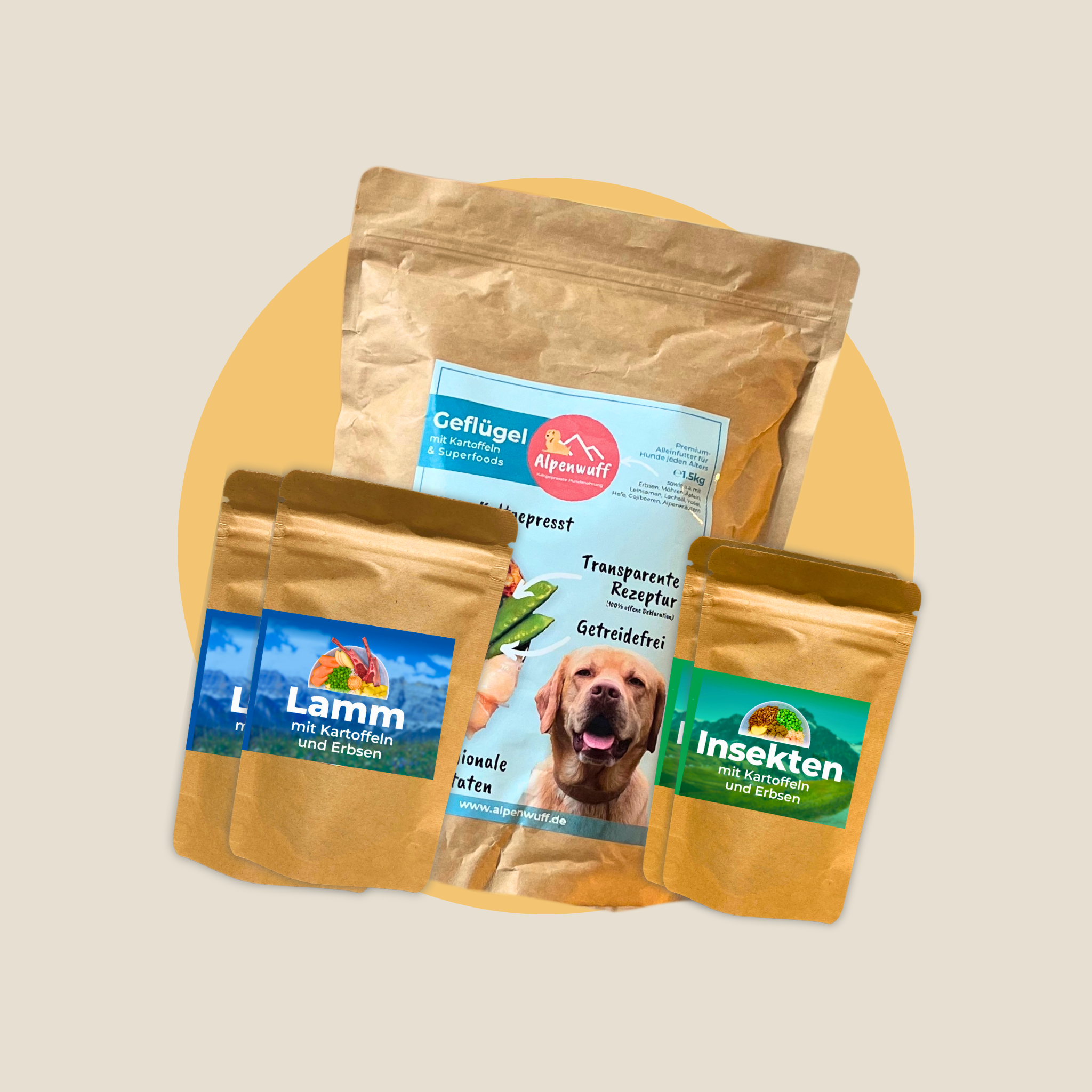
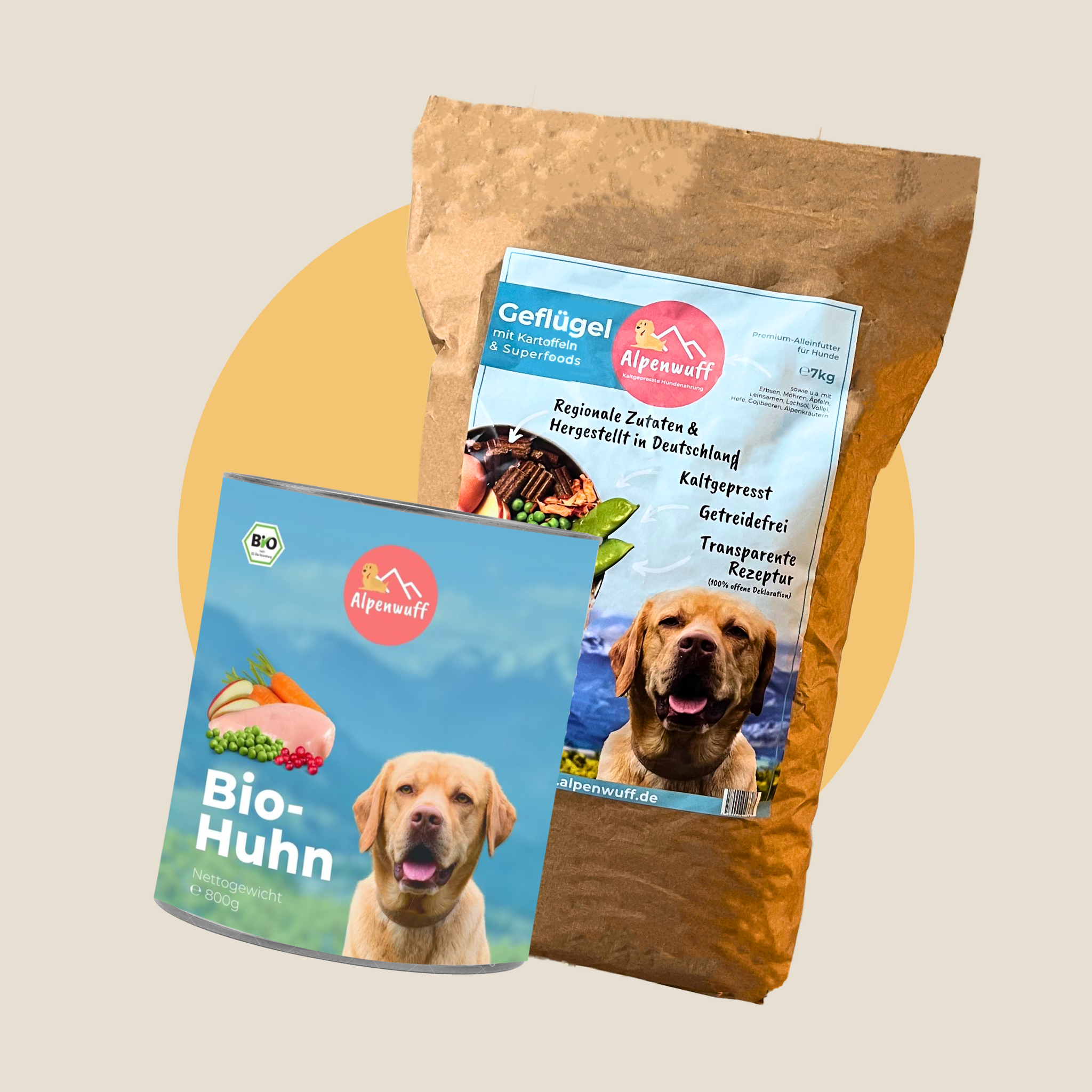
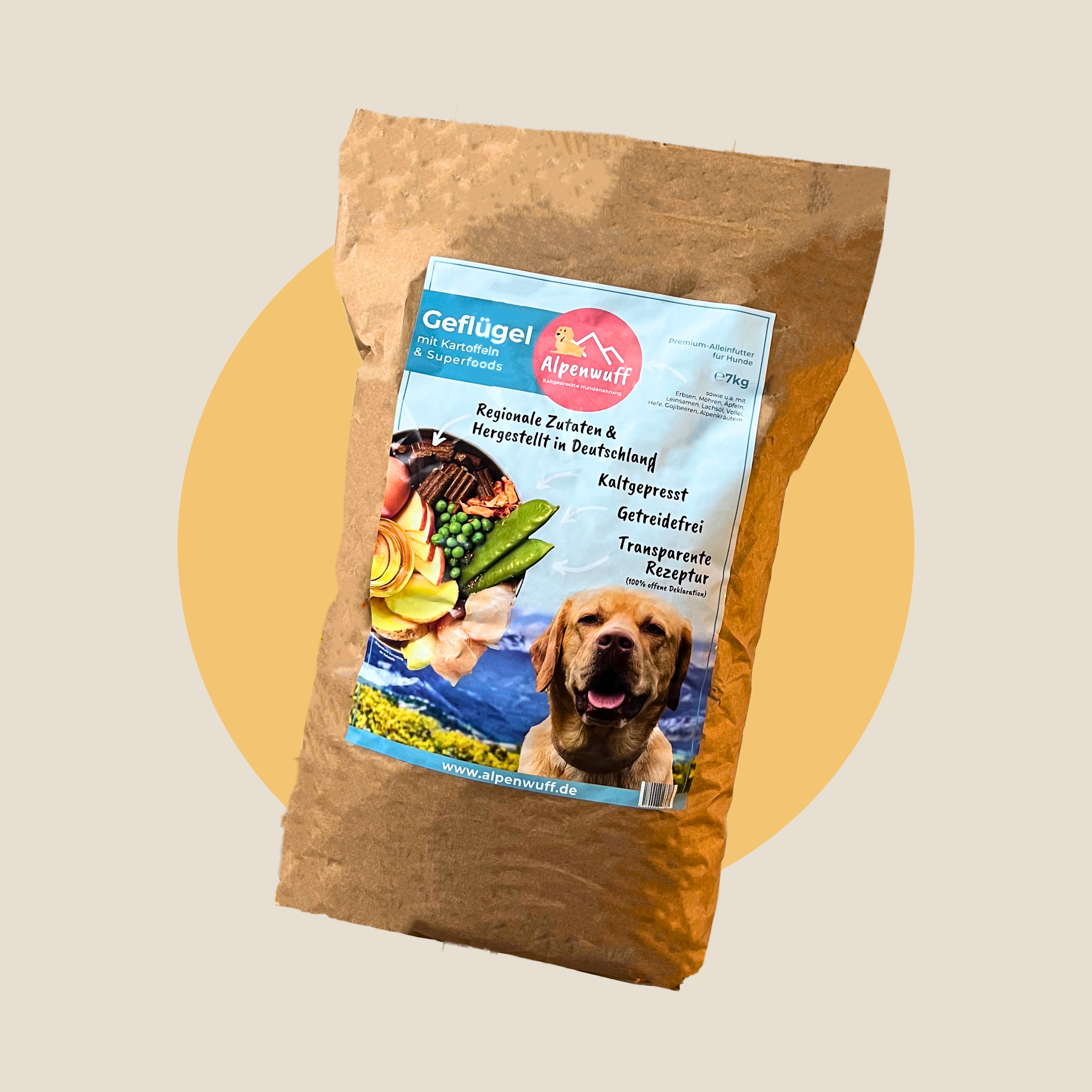
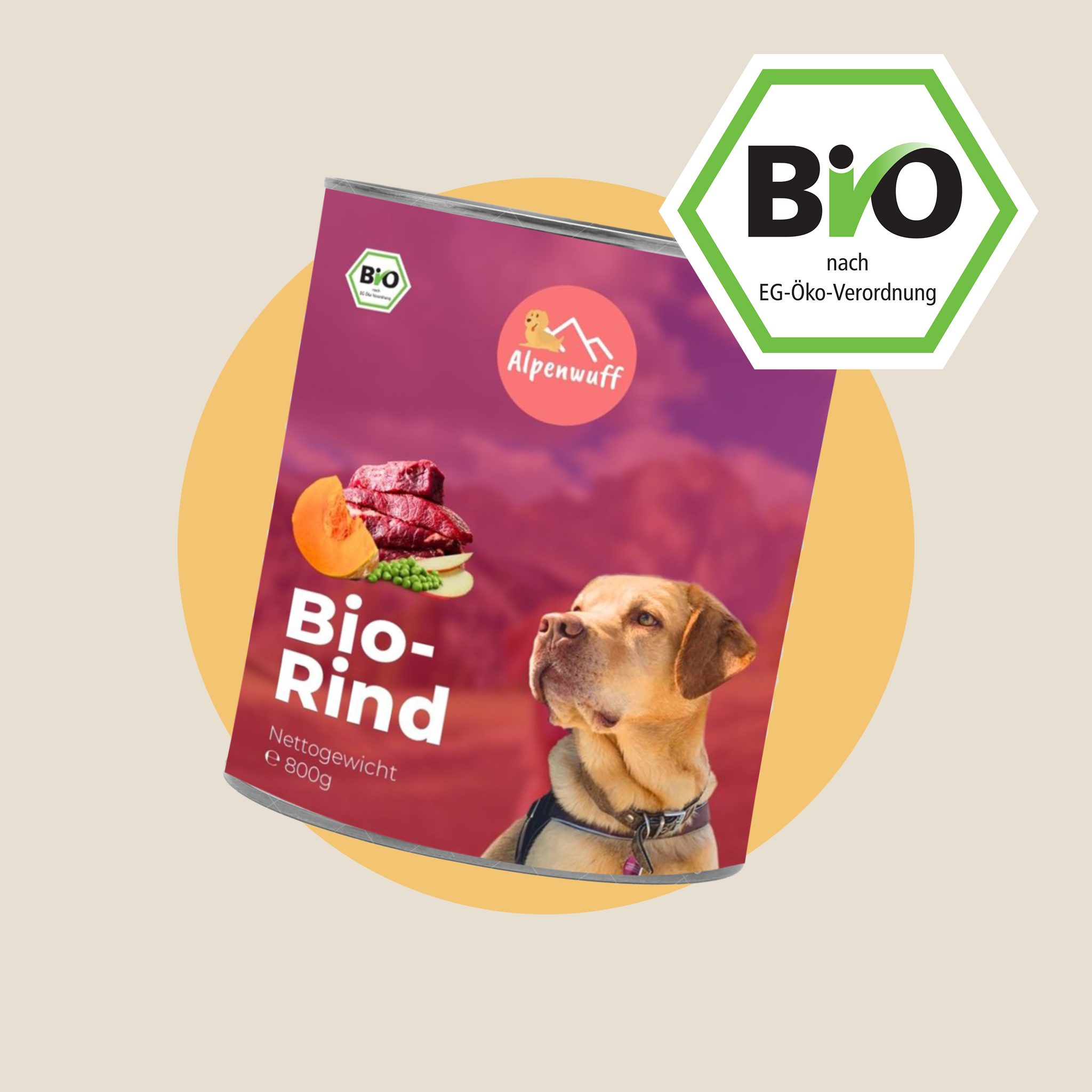
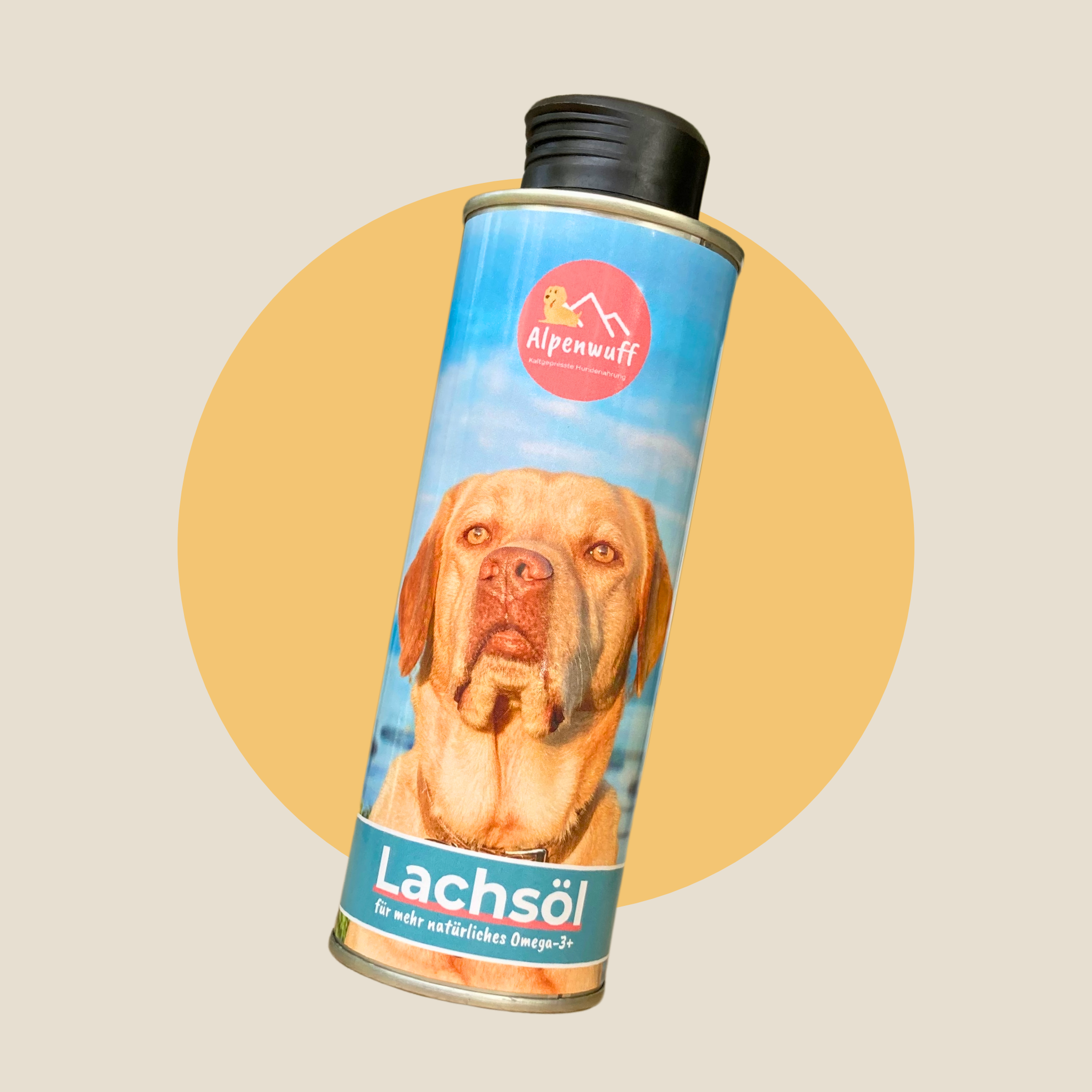
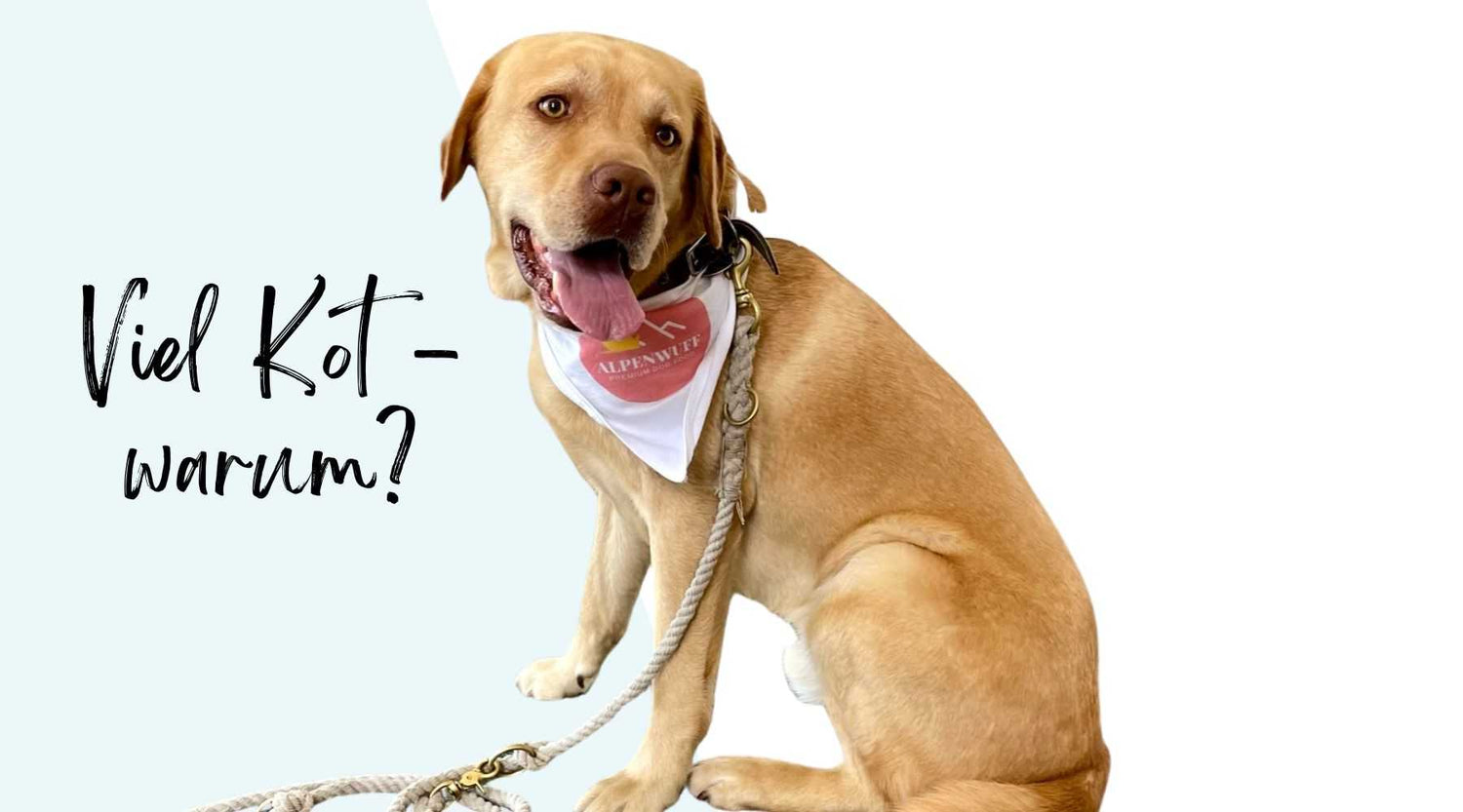

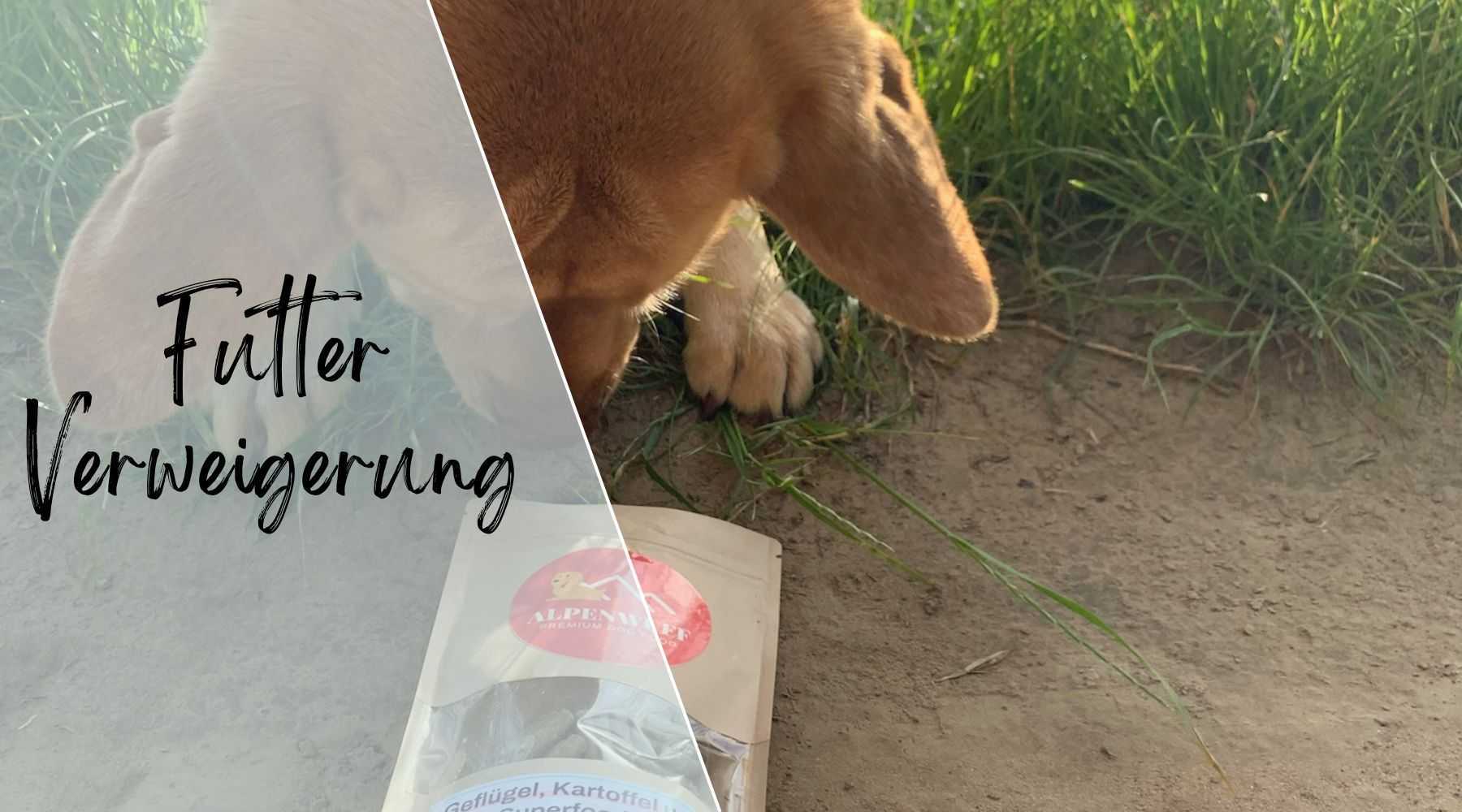
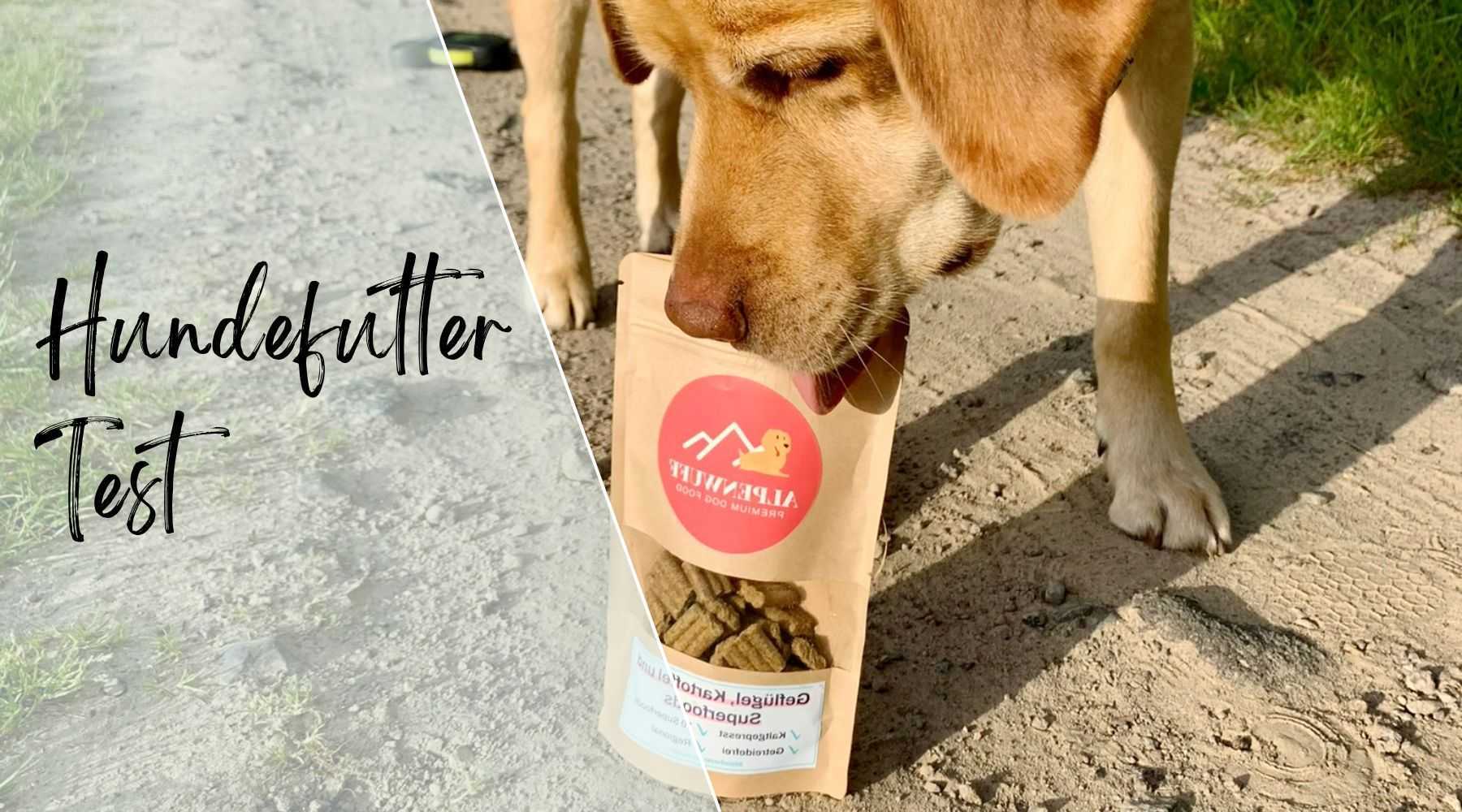
Leave a comment
All comments are moderated before being published.
This site is protected by hCaptcha and the hCaptcha Privacy Policy and Terms of Service apply.